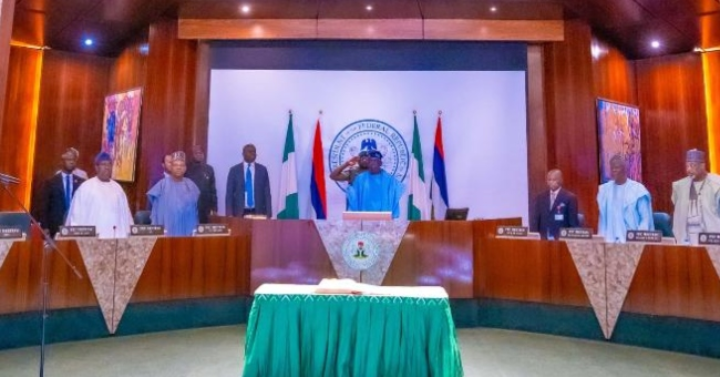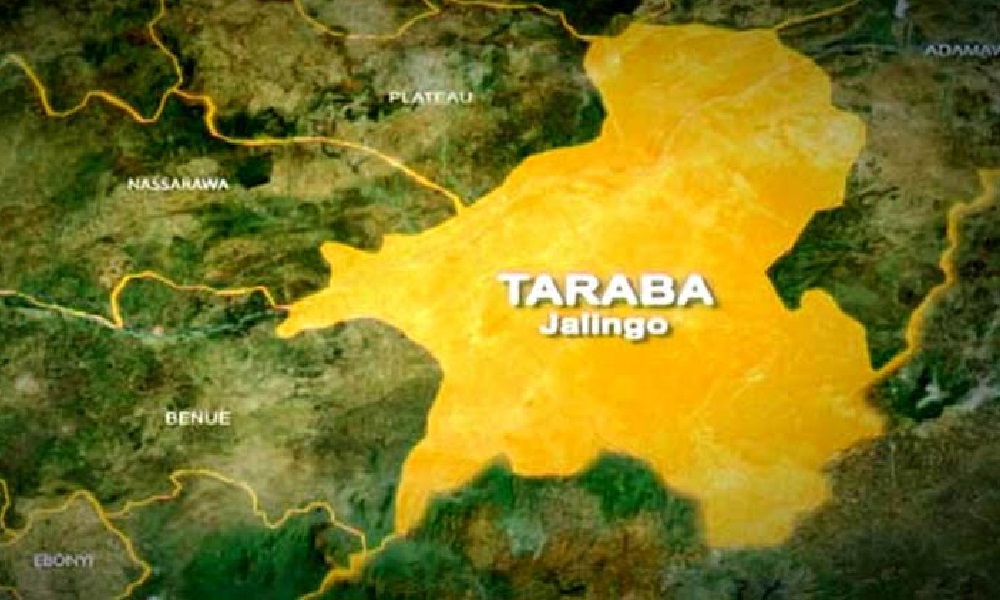News
JUST IN: FEC Steps Down Minimum Wage Memo For Further Consultation

By Kayode Sanni-Arewa
The Federal Executive Council (FEC) has stepped down consideration and deliberation on the memo on the new minimum wage to allow President Bola Tinubu engage in more consultation with stakeholders.
Minister of Information and National Orientation, Mohammed Idris, disclosed this on Tuesday while briefing State House correspondents on the decisions taken at the council meeting.
He said the President has studied the report submitted by the Tripartite Committee on Minimum Wage and would consult further before a final submission on a new national minimum wage to the National Assembly.
Talks for a new minimum wage for Nigerian workers have been on for a while. The Minimum Wage Act of 2019, which made ₦30,000 the minimum wage, expired in April 2024. The Act should be reviewed every five years to meet up with contemporary economic demands of workers.
President Bola Tinubu in January set up a Tripartite Committee to negotiate a new minimum wage for workers. The committee comprise the Organised Labour, representatives of federal and state governments as well as the Organised Private Sector.
However, the committee members failed to reach an agreement on a new realistic minimum wage for workers, forcing labour to declare an indefinite industrial action on Monday, June 3, 2024. Businesses were paralysed as labour shut down airports, hospitals, national grid, banks, National Assembly and state assemblies’ complexes.
The labour unions said the current minimum wage of ₦30,000 can no longer cater to the wellbeing of an average Nigerian worker, saying government should offer workers something economically realistic in tandem with current inflationary pressures, attendant effects of the twin policies of petrol subsidy removal and unification of the forex windows of the current administration.
Labour “relaxed” its strike on June 4, 2024 following assurances from the President that he was committed to a wage above ₦60,000.
Both the Trade Union Congress (TUC) and Nigeria Labour Congress (NLC) leadership subsequently resumed talks with the representatives of the Federal Government, states, and the Organised Private Sector
On Friday, June 7, 2024, the two sides (labour and the government) still failed to reach an agreement. While labour dropped again its demand from ₦494,000 to ₦250,000, the government added ₦2,000 to its initial ₦60,000 and offered workers ₦62,000.
Both sides submitted their reports to the President who is expected to make a decision and send an executive bill to the National Assembly to pass a new minimum wage bill to be signed into law by the President.
In his Democracy Day speech on June 12, 2024, the President assured the Organised Labour that an executive bill on the new national minimum wage for workers would soon be sent to the National Assembly for passage.
The President is expected to make a decision on the ₦62,000 proposal of the government and private sector side; and the ₦250,000 demand of the Organised Labour.
News
15 huts razed, one injured in renewed Jukun-Tiv violence

A fresh outbreak of ethnic violence between the Jukun and Tiv communities has erupted in Taraba State, with suspected Jukun militias launching an early-morning attack on Dekeh Village along the Wukari–Kente Road.
According to security sources available to Zagazola Makama, the incident occurred at approximately 1:00 a.m. on Tuesday.
About six armed assailants stormed the village, opening fire indiscriminately and setting 15 huts ablaze. The attack forced residents to flee in panic, leaving behind food items, including yam seedlings, which were destroyed in the blaze.
One resident identified as Mdue Saaondo, sustained gunshot injuries during the assault. He was rescued by a joint team of police and military personnel and transported to the Federal University Teaching Hospital in Wukari for medical treatment.
The Taraba State Police Command has launched an investigation to identify and apprehend those responsible. Authorities have also scheduled a security meeting with the Wukari Local Government Traditional Council as part of efforts to restore peace and encourage dialogue between the Tiv and Jukun communities, who have long-standing disputes over land and territorial claims.
“Patrol and surveillance operations are ongoing to forestall further violence and ensure stability in the area,” police authorities stated.
The incident adds to the growing list of violent clashes that have plagued southern Taraba in recent years, underscoring the urgent need for a sustainable resolution to the communal tensions.
News
2025 U-20 AFCON: Flying Eagles zoom into quarter-final after draw with Kenya

Nigeria’s Flying Eagles booked a place in the quarter-final at the 2025 Africa U-20 Cup of Nations after playing out a 2-2 draw against Kenya.
Aliyu Zubairu’s side finished second in Group B with five points from three games.
The Atlas Cub of Morocco top the group with seven points after beating Tunisia 3-1 at the Suez Canal Stadium in Ismailia.
Kenya started the game strongly, and deservedly took the lead after six minutes.
Nigeria defender Emmanuel Chukwu handled the ball inside the box, and after initially awarding a free kick to Kenya, the centre referee pointed to the spot following consultation with VAR.
Captain Kevin Wangaya Colly slotted the ball past Ebenezer Harcourt to give the Rising Stars the lead.
The Flying Eagles fought back seven minutes later with Lillestrøm striker Kparobo Arierhi netting after he was put on through on goal by Simon Cletus.
Nigeria dominated the game in the second half but failed to test the Kenyan goalkeeper.
Kenya took the lead for the second time in the game through substitute William Nwangi on 68 minutes.
Nwangi lashed home Humphrey Kegengo’s free kick from inside the box.
Daniel Bameyi, however, converted from the spot to hand the Flying Eagles a share of the spoils.
News
Trump announces judicial nominees, accuses US court of obstruction

United States President Donald Trump has announced a fresh slate of judicial nominees in a series of posts on Truth Social on Tuesday.
The president, who has repeatedly expressed frustration over what he sees as judicial obstruction, followed up on Wednesday with a post criticising the judiciary for allegedly preventing him from carrying out the mandate of the American people.
The Republican leader, whose second-term agenda has encountered multiple judicial roadblocks, wrote: “Our Court System is not letting me do the job I was Elected to do.
“Activist judges must let the [Donald] Trump Administration deport murderers, and other criminals who have come into our Country illegally, WITHOUT DELAY!!!”
Trump named Maria Lanahan, Missouri’s Principal Deputy Solicitor General, as a nominee for a judgeship on the US District Court for the Eastern District of Missouri. He praised her as “a true patriot” in a post on Tuesday.
The 78-year-old also nominated Judge Cristian Stevens to serve on the same court, describing him in another post as “a Great Patriot.”
The announcements came a day after a federal appeals court declined the Trump administration’s request to revoke temporary legal status from hundreds of thousands of Nicaraguans, Venezuelans, Haitians, and Cubans living in the United States.
-

 News21 hours ago
News21 hours agoReal cause of Herbert Wigwe’s helicopter crash revealed
-

 News13 hours ago
News13 hours agoJust in: Finally, EFCC bows to pressure, releases VDM
-

 Politics22 hours ago
Politics22 hours agoUghelli North PDP Holds Crucial Meeting
-

 News19 hours ago
News19 hours agoJust in: Security and Exchange Commission declares PWAN as PONZI scheme, cautions Nigerians
-

 News17 hours ago
News17 hours agoJust in: Lagos LG chairman slumps during APC meeting
-

 Economy22 hours ago
Economy22 hours agoSEE Black Market Dollar to Naira Exchange Rate Today – 7th May 2025
-

 News21 hours ago
News21 hours agoFG starts massive overhaul of NYSC scheme, plans teachers’, medical corps
-

 News18 hours ago
News18 hours agoMultiple video evidence against Nnamdi Kanu






